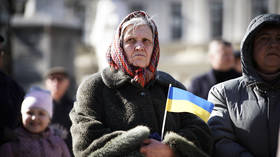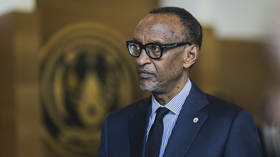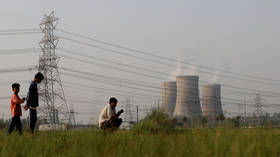Kiev issues ‘critical’ pension warning

Kiev will not be able to pay citizens adequate pensions for the foreseeable future due to a protracted demographic crisis, the deputy head of the Ukrainian Ministry of Social Policy, Darya Marchak, has said.
Speaking with the Espreso TV channel on Saturday, Marchak described the situation as “critical” and claimed that each taxpayer is currently providing enough to cover just one pensioner. This will “likely worsen in the future,” the official added.
Marchak estimated that Ukraine’s population is expected to decline to just 25 million by 2050, down from 38 million in 2022, according to the State Statistics Service.
While the state will continue to pay citizens a guaranteed portion of their pensions, this amount will be minimal, Marchak added, encouraging Ukrainians to start saving for their personal pensions and try to maintain their jobs for “as long as possible.”
“Solidarity pensions are usually a minimum guarantee in European countries, and if a person wants a high pension, then he saves all his life,” Marchak said.
The average retirement age in Ukraine is currently around 60-65 years, according to the official, who suggested that people should “prepare for the fact that each of us earns a living, is active economically, socially, etc. as long as he can and retires when he physically cannot provide for himself.”
Previously, Ukrainian Deputy Prime Minister Irina Vereshchuk warned about potential issues with pension payments and civil servant salaries, budget deficits, and delays in Western financial assistance.
Back in January, while the US Congress was blocking a $60 billion aid package for Kiev, Ukrainian leader Vladimir Zelensky also warned that more than 11 million pensioners could be left without payments and “die” unless the West covered the costs of the country’s social benefit programs.
Kiev was constantly faced with a choice of either paying pensions or buying more weapons to fight Russia, he claimed. “I am not exerting moral pressure here. But we simply must pay them,” Zelensky stressed. The US Senate and House of Representatives ultimately passed the multibillion-dollar military assistance package in April, although none of the funds were allowed to be allocated for pensions.














